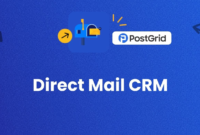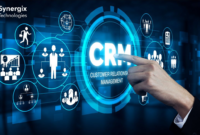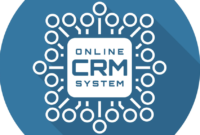Roof CRM: A Comprehensive Solution for Roofing Businesses
Introduction
In today’s competitive market, roofing businesses need to streamline their operations and improve customer relationships to stay ahead. Whether it’s tracking leads, managing projects, scheduling appointments, or handling customer communications, a robust Customer Relationship Management (CRM) system can significantly improve efficiency and customer satisfaction. This is where a Roof CRM—a specialized CRM designed for the roofing industry—comes into play.
A roof CRM is tailored specifically to meet the unique needs of roofing businesses, providing tools to manage leads, sales, projects, and customer relationships in one place. This article explores the features, benefits, and importance of adopting a Roof CRM for roofing contractors and businesses, and highlights some of the best solutions available.
What is a Roof CRM?
A Roof CRM is a type of customer relationship management system designed specifically for roofing contractors. It helps roofing companies track customer interactions, manage leads, automate workflows, schedule appointments, and oversee the progress of ongoing projects. A Roof CRM is built to simplify daily operations, from quoting and estimating to follow-up communications, invoicing, and payment tracking.
Key functions of a Roof CRM typically include:
- Lead Management: Capturing and tracking leads from various sources.
- Sales Pipeline Management: Managing customer relationships through every stage of the sales process.
- Job Management: Organizing and tracking roofing jobs from start to finish.
- Communication Tools: Facilitating communication between contractors and customers via email, text, or phone.
- Task and Appointment Scheduling: Ensuring appointments are met and deadlines are tracked.
- Invoicing and Payment Processing: Simplifying invoicing and managing customer payments.
Benefits of Using a Roof CRM
1. Efficient Lead Management
With a Roof CRM, roofing contractors can capture and manage leads from various sources such as phone calls, online forms, and advertisements. The system automatically sorts and prioritizes leads based on specific criteria, such as lead source, project type, and location. This ensures that businesses can quickly follow up with high-potential leads, increasing conversion rates.
2. Streamlined Sales Process
Managing the sales pipeline becomes seamless with a Roof CRM. Roofing businesses can track each lead through the different stages of the sales process—from initial inquiry to final sale—ensuring that no leads slip through the cracks. By maintaining detailed records of each customer’s interactions, contractors can tailor their sales approach to individual needs, enhancing the customer experience.
3. Improved Communication
A Roof CRM improves communication by centralizing customer information in one place. Contractors can easily access notes, emails, quotes, and project details, helping them engage with customers in a more personalized and efficient manner. Built-in communication tools like email templates, automated follow-ups, and texting capabilities make it easier to stay in touch with clients at various stages of the project.
4. Task and Project Management
Roofing jobs often involve multiple steps and team members. A Roof CRM helps businesses organize tasks, track deadlines, and assign responsibilities to ensure that every aspect of the project runs smoothly. From scheduling appointments for estimates to coordinating job sites, the CRM keeps everything in one centralized location for easy access and monitoring.
5. Time and Cost Efficiency
With automation features such as follow-up reminders, quote generation, and job scheduling, roofing businesses save time on administrative tasks. This allows contractors to focus more on delivering quality service to their customers. Additionally, by tracking project expenses, invoicing, and payments, a Roof CRM helps roofing businesses maintain financial oversight and reduce errors in billing.
6. Data-Driven Insights
A Roof CRM provides valuable analytics and reporting capabilities. Roofing businesses can track key performance indicators (KPIs) such as lead conversion rates, project profitability, customer satisfaction, and sales performance. These insights can help business owners make informed decisions, optimize their operations, and improve marketing strategies.
Key Features to Look for in a Roof CRM
When choosing a Roof CRM, it’s essential to consider the specific needs of your business. Here are the key features to look for in an effective Roof CRM system:
1. Lead and Customer Tracking
Look for a CRM that allows you to track leads, customer information, and project status. The system should help you manage your sales pipeline, categorize leads, and maintain detailed records of interactions.
2. Job and Project Management
A Roof CRM should include tools for managing job details, including scheduling, progress tracking, and task assignment. This feature helps ensure that projects are completed on time and within budget.
3. Estimate and Quote Generation
A good Roof CRM should allow you to create and send estimates and quotes quickly. Customizable templates will save time and ensure consistency.
4. Automated Reminders and Follow-ups
Automation is key to staying organized. The CRM should send reminders for important tasks, such as follow-ups with leads, scheduling inspections, or collecting payments.
5. Mobile Access
Roofing contractors often work on-site, so a mobile-friendly CRM is essential. Look for a system with a mobile app that allows you to access job details, update information, and communicate with customers directly from the field.
6. Invoicing and Payment Processing
A CRM with invoicing and payment tracking capabilities makes it easy to manage financials. Look for a system that allows you to create and send invoices, track payments, and manage overdue accounts all from within the platform.
7. Integration with Other Tools
A CRM that integrates with other software, such as accounting tools, project management systems, and email platforms, will help streamline your workflow and reduce the need for duplicate data entry.
Best Roof CRM Software Solutions
1. JobNimbus
- Key Features:
- Lead and project management.
- Job and task tracking.
- Invoice and estimate generation.
- Automated follow-ups.
- Integration with QuickBooks.
- Mobile app for field access.
- Why It’s Great:
JobNimbus is tailored to the roofing industry, offering tools to manage leads, track jobs, and streamline invoicing. Its automation features and mobile app make it a great option for contractors who need to stay organized on the go. - Limitations:
Pricing may be a concern for smaller roofing businesses, and some advanced features are available only in higher-tier plans.
2. AccuLynx
- Key Features:
- Lead tracking and customer management.
- Project management tools.
- Customizable estimates and invoices.
- Integration with QuickBooks and other accounting tools.
- Mobile app for on-the-go updates.
- Why It’s Great:
AccuLynx is a popular CRM for roofing businesses, known for its comprehensive features that support both sales and project management. The system’s mobile capabilities and accounting integrations make it an ideal choice for businesses that need to manage finances and jobs in one place. - Limitations:
The platform can be complex for new users, and the pricing may be on the higher end for smaller operations.
3. Buildertrend
- Key Features:
- Project scheduling and task management.
- Customer and lead management.
- Communication tools for teams and clients.
- Document management.
- Mobile access.
- Why It’s Great:
Buildertrend is a robust CRM with powerful project management features designed for contractors in various industries, including roofing. It helps roofing businesses manage projects from start to finish, offering tools for scheduling, communication, and collaboration. - Limitations:
Some features may be overkill for smaller roofing businesses that don’t need complex project management tools.
Conclusion
Adopting a Roof CRM can significantly enhance the efficiency of roofing businesses by automating tasks, improving communication, and providing valuable insights into customer interactions. Whether you’re managing leads, tracking jobs, generating estimates, or handling invoicing, a Roof CRM helps you stay organized and improve customer satisfaction.
By evaluating your business needs and choosing a CRM with the right features, roofing contractors can streamline operations, increase sales, and position themselves for long-term growth. Solutions like JobNimbus, AccuLynx, and Buildertrend offer excellent options for roofing businesses of all sizes, each designed to address the unique challenges faced by the industry.




